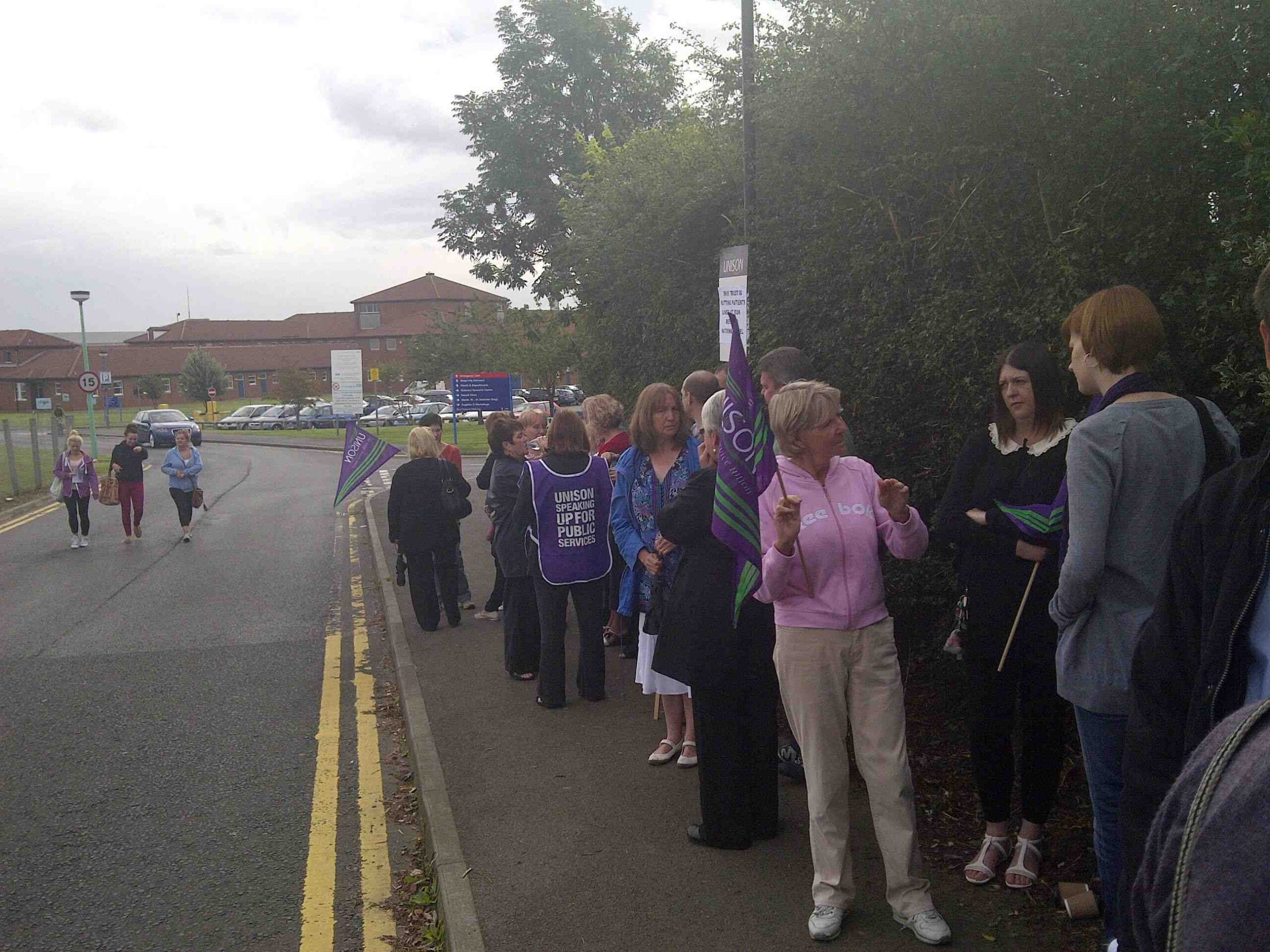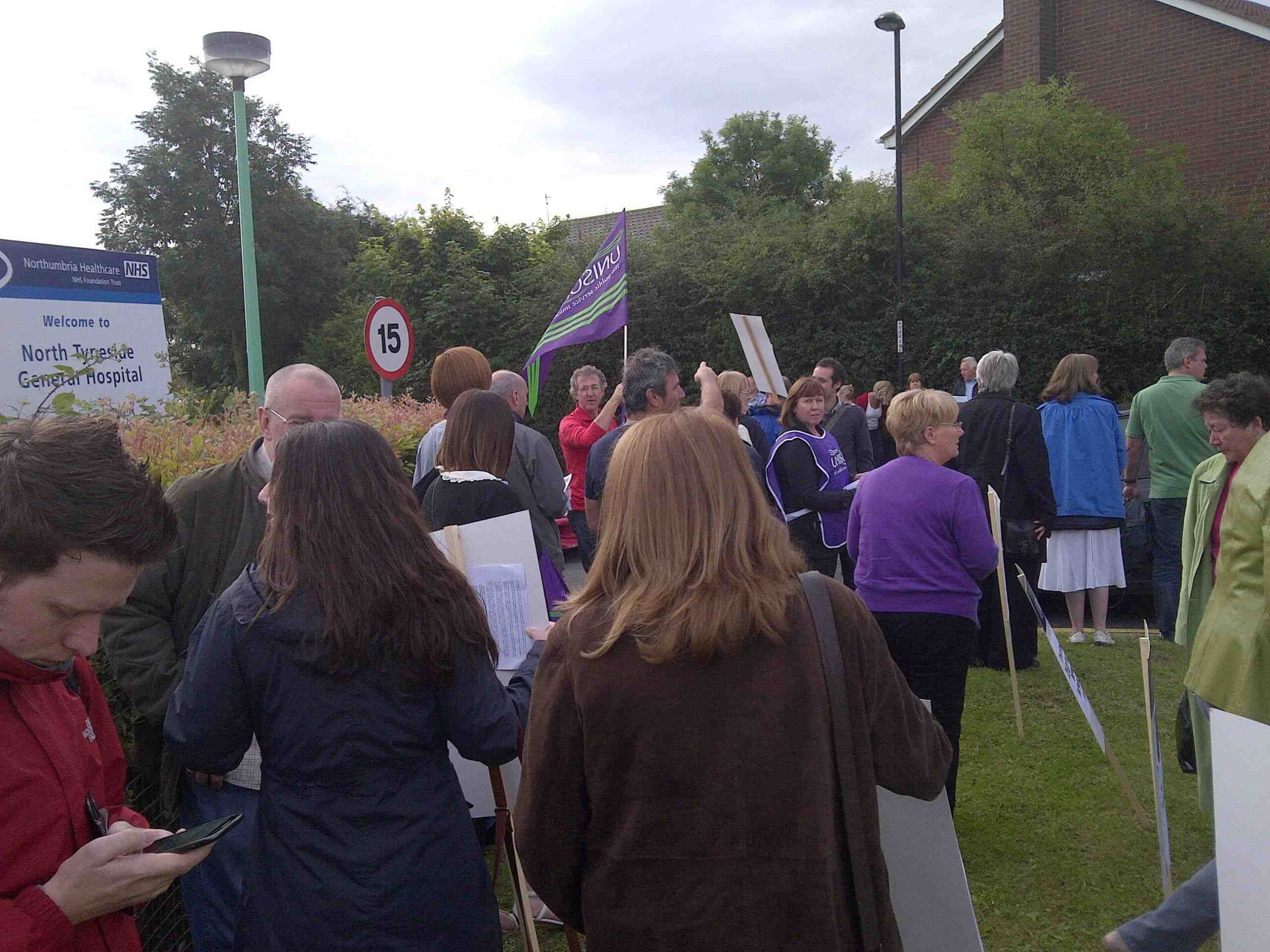UNISON members employed by Northumbria Healthcare Trust took strike
action today in response to the decision of the Foundation Trust to
slash mileage rates from 47p per mile to 24p. The workers concerned are
Community Nurses, Occupational Therapists, Technical Instructors and
Social Workers, who are required to use a car for work, because they
work in the community covering large distances to meet the needs of
vulnerable, often elderly patients.
UNISON members employed by Northumbria Healthcare Trust took strike action today in response to the decision of the Foundation Trust to slash mileage rates from 47p per mile to 24p. The workers concerned are Community Nurses, Occupational Therapists, Technical Instructors and Social Workers, who are required to use a car for work, because they work in the community covering large distances to meet the needs of vulnerable, often elderly patients.
The dispute has been going on now since June 28th. UNISON negotiators report that members are furious at the cynical moves the employers have used essentially to break national terms and conditions of service.
24p per mile simply doesn’t cover the cost of petrol, maintenance, business insurance or the cost savings the trust makes by dint of staff transporting essential equipment to patient’s homes. The trust has already stopped monthly lump sum payments for car users. Workers who want to remain on 47p per mile can only do so by signing up to an expensive commercial lease car scheme run by the trust. Even then the Trust reserves the right to turn down an application for the lease car scheme.
All this comes on top of the 12% cut in real wages that the Government’s pay freeze has imposed over the last couple of years. NHS staff working in the community are now being asked to subsidise their employer as they do their jobs. The Trust, which covers North Tyneside and Northumberland, covers a huge area, including isolated rural areas.
UNISON members who refused to use their own cars for work have been threatened with disciplinary action, UNISON’s response was to ballot members to legally protect them. UNISON argues that if members are only being paid Public Transport rates then logically they can use public transport to do their work. The lunacy of the Trusts position of course is that the cost and inconvenience of using public transport, particularly in rural areas means that workers can do far less in a day.
The Trust’s response was to threaten members:
“The Trust reserves the right to advise them that part- performance of their duties will not be accepted, and to withhold pay accordingly”.
“To summarise the Trust’s position on pay and part performance: staff who carry out their full workload will be paid as normal. Staff who offer less than their normal workload will either: be informed that the Trust will not accept part-performance, in which case they will not be paid and should not attend work; be expected to carry out tasks as directed by the Trust, for which they will be paid pro-rata.”
 As UNISON points out:
As UNISON points out:
The Trust cannot have it all ways. They either should provide a pool car to staff who do not wish to take up the option of a lease car, OR pay them the appropriate standard rate of mileage, and not the public transport rate which has been imposed.
Staff who provide their own private vehicles to undertake their workload in a timely manner and reduce significant wastage of journey time, should not be penalised by the Trust by having to subsidise their own travel.
The Trust is responsible for this period of industrial unrest, NOT UNISON members. Instead of negotiating, the Trust has sought to bully and intimidate UNISON CBU members participating in legitimate, legal industrial action.
Public Sector Managers in the Health Service, Local Government and elsewhere see member’s terms and conditions as an easy target. But there is a world of difference between the Boardroom and the front line. The example of Northumbria Health Trust is replicated in many areas. In some areas, management attacks go far further than this.
As the Con Dem austerity measures place more and more pressure on the public sector, disputes like this are likely to become more widespread. Services are being cut to the bone and there are limits to what workers can take. UNISON and the other Public Sector Unions need an industrial strategy that will stop the Government in their tracks.






